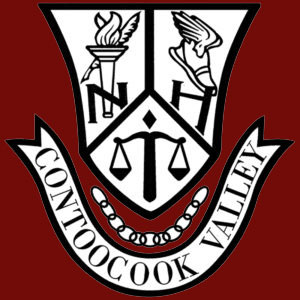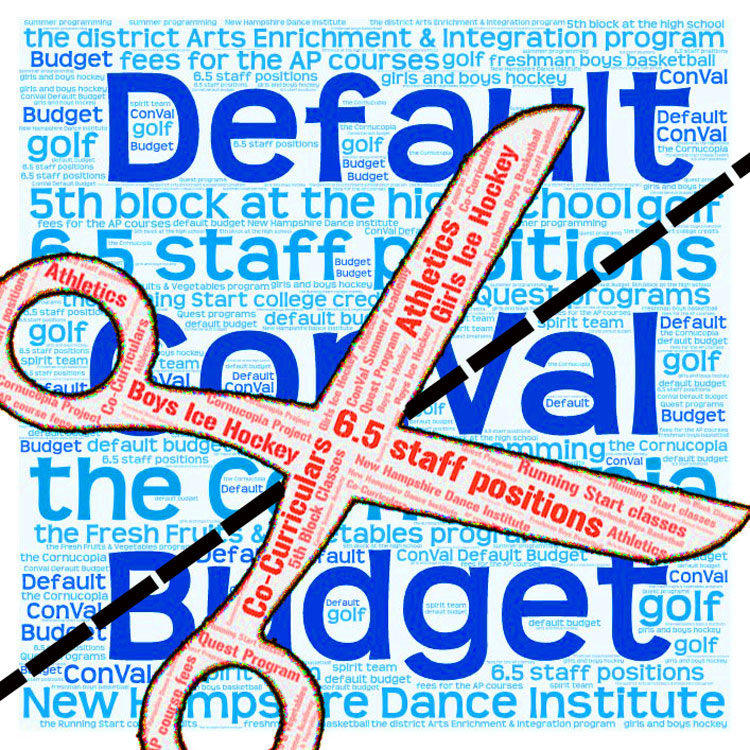by ConVal School Board Member Janine Lesser
The Deliberative Session on February 6th was instructive to the school board. The session opened with testimony from several parents and community members explaining why the items mentioned in an earlier Monadnock Ledger-Transcript article (on the default budget) should not be cut from the school budget. These community members spoke with great passion, which we entirely appreciate, and support. Although we knew any cuts would be very unpopular, the point of the warning was not to intimidate or scare, but simply to lay bare the reality of six years of decreasing state support, the continuing enrollment decline, and narrow and to-the-bone budgets.
The operating budget has been flat over the last five years, with annual increases below 1 %. These budgets were crafted with taxpayers in mind to keep the increases to property taxes to a minimum. These lean budgets absorbed, along with regular inflation, increases to transportation, food services, and health care benefits, increased staffing costs due to inability to hire certain required professionals, and spikes in special education services. In 2018, the nine communities voted to support the operating budget and the Fact Finder Report. That was a strong statement that our residents want to support the schools, the students, and especially that they want their teachers paid in a competitive way. But that vote caused an average of 11.81% increase in property taxes, depending on your town.
This year, the realities of the budget development are that there are no places to make up these regular budget increases: health care benefits, retirement benefits, school maintenance that has become absolutely necessary, transportation contract increases, food service contract increases, and statutorily required special education increases. In addition, we have a new two-year teacher contract, which the board and the CVEA fully support.
In 2018, the state statute that directs how school districts must develop their default budget changed to not allow any expenses that were not included in the previously approved budget, outside standing contracts. That required ConVal to propose a default budget that had to leave $1.2 million in required expenses out of the default–making it necessary to make deep cuts should our proposed operating budget not be approved. The cuts that were listed were the least invasive to the core mission of the school district.
But the point of the default budget, and the article that we advanced, was to alert our nine communities to the crucial nature of passing the operating budget, and not going to default.
Those cuts include 6.5 staff positions in the middle and high school (in addition to the staff cuts that have naturally occurred due to declining enrollment); the Cornucopia Project, New Hampshire Dance Institute, summer programming and Quest programs; the Fresh Fruits & Vegetables program in the elementary schools; fees for the AP courses and the Running Start college credits; the district Arts Enrichment & Integration program; 5th block at the high school (a crucial source of academic support); and the girls & boys hockey, golf, spirit team, and freshman boys basketball co-curricular programs. These cuts look as bad to us as they do to school families, and they are not the total cuts that will have to be made. It is a good lesson on how slim our school budget is, and what cutting $1.2 million out of it means.
We have not found a way to create a firm estimate on how much a consolidation of schools could save. It is more complex than a simple addition. We first have to create a model that looks at the educational plan. We are looking at the model advanced by a previous board working with community members, as well as the models advanced by our administration. Will we be able to deliver services at least with the same quality as we do now? Is there a chance to increase services (maybe contemplate universal pre-K?) with the plans for consolidation?
The communities around our small elementary schools want answers to how a school closing might affect their community. Those have to be answered in order for the voters to make a choice on the educational configuration that will make the most sense for all nine communities. That is why the board fully supported article #12 of the warrant. And finally, the state must step up to its financial obligations. New Hampshire’s constitution has one of the strongest commitments to public education in the country (ncsl.org, The State Role in Education) but is, with Illinois, one of the two states most dependent on property taxes to fund that commitment. Property taxes now pay for 69% of public education in New Hampshire. If property tax payers are looking for demons, that is a good place to start.
In closing, we want to urge everyone to support the proposed operating budget for the coming year, Article #1 on the warrant and the teacher contract, Article #2. It is a bare-bones, skeleton budget and the default budget would mean drastic cuts that will greatly impact student experiences.

